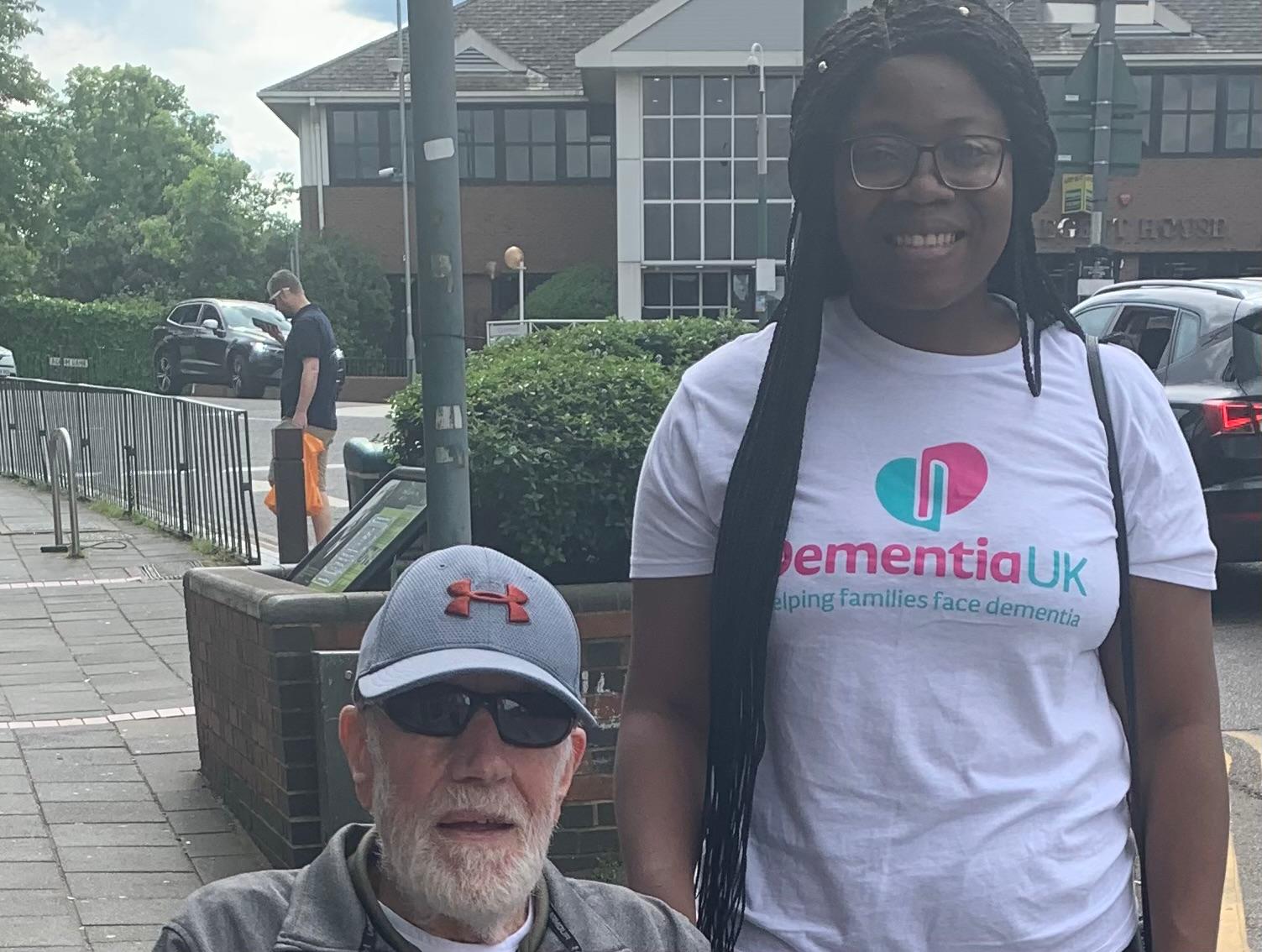Increasing Dementia Awareness in Borehamwood, Shenley, Radlett, Bushey, Watford, and surrounding villages

Published: 11/06/2024
It is estimated that around 850,000 people are living with dementia in the UK, and this is projected to rise to 1.6 million by 2040*. Dementia diagnosis is vital for people to be able to receive the care, treatment and support they need yet statistically 1 in 3 people with dementia do not have a diagnosis. This suggests that there are thousands of people in the UK living with dementia without a diagnosis and as a result without the proper care.
Dementia Action Week last month, represented a national event run by the Alzheimer’s Society, whose vision is a world without dementia. Alzheimer’s Society campaigns to increase awareness of dementia and improve the lives of those living with dementia, and funds research to find a cure. It is therefore a charity that is very close to our hearts, here at Right at Home Borehamwood and Watford.
Last month to show support to our clients facing Dementia we had running various digital dementia awareness campaigns on our social media channels.
We are dispelling three of these common myths in our blog below, and sharing information on what we are doing to increase dementia awareness in Borehamwood, Shenley, Radlett, Bushey, Watford, and surrounding villages.
Myth one: Dementia is a disease
The terms ‘Dementia’ and ‘Alzheimer’s’ are often used interchangeably but dementia is not a disease in its own right. Dementia is caused by a number of different diseases that affect the brain and Alzheimer’s disease is the most common of these. There are various types of dementia, five of the most common are vascular dementia, Lewy body dementia, Frontotemporal dementia, and Mixed dementia.
Myth two: Dementia only affects memory loss
Yes, indeed, dementia often begins with short-term memory loss, dementia is the umbrella name for a group of symptoms. These symptoms commonly include problems with Thinking, problem-solving, language, memory, and perception. Different types of dementia cause damage to different parts of the brain.
Myth three: After a dementia diagnosis, the only option is to move into a care home
In-home dementia care from a trained and trusted Caregiver can help alleviate the progression of symptoms. In addition, regular routine and familiar home surroundings can reduce feelings of stress amongst people living with dementia. Even if your loved one is diagnosed with dementia, with the right care and support they can continue living in the comfort of their own home. Another option for those requiring 24-hour dementia care at home would be in live in care.
If you’re based in Borehamwood, Shenley , Radlett, Bushey, Watford and surrounding villages and require support caring for a loved one with Alzheimer’s disease or another type of dementia, contact our office team for information on how we can help. You can also read more about dementia homecare on our service page.
At Right at Home Borehamwood & Watford, we have been raising awareness and fundraising for Alzheimer’s Society for years, from hosting bake sales to doing extra training in dementia awareness and taking our clients to activities in support of their condition.
This year Joan, our community engagement officer will walking 31 miles in May & 31 Miles in June for Dementia. Joan will be doing this whilst she accompanies some of our clients on their daily walks as we love to get everyone involved, in our support for Dementia awareness. In September we have a few of our carers also taking part in a skydive for charity to support Alzheimer’s.
If you’d like to show support and sponsor one of our lovely colleagues in their efforts, please follow us on social media for more awareness information.
For more information on how we can support you and your family with dementia homecare in Borehamwood, Watford and surrounding villages, please speak to a member of our friendly office team on 020 8092 9994.
Other useful :
- Alzheimer’s Society’s guide to dementia risk factors and prevention
- Lewy Body Society UK – a registered charity in England and Wales
- Dementia UK – a registered charity in England, Wales and Scotland
- Dementia in the UK | Age UK -– a registered charity in England, Wales and Scotland
- Funding Guide for Homecare in Borehamwood & Watford | Right at Home
*Source: Alzheimer’s Society website
